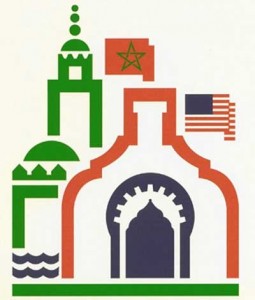In a few days I am off to Morocco for a seminar at TALIM on higher education and employment in Morocco. But the job market in the United States is also very challenging of college graduates right now, and American educators may well be asking themselves if higher education in this country is adequately preparing students to enter the work force of the global era.
We still function in terms of national economies, but those economies are increasingly connected so that a crisis in one affects many others. We also live in a world in which graduating students in America compete for employment, directly or indirectly, with their peers in Mexico, Morocco, India and Taiwan. And the whole lot of them are also competing with graduating students in Pakistan, Costa Rica, Tunisia, Israel and Poland.
If, indeed, we live in an a world in which economies are increasingly interdependent, shouldn’t the educational sector function that way as well? It is a real challenge. Ironically this global economy and global web of information and communication has not obliterated cultural distinctions. I would argue it has strengthened the voice of many minority cultures. But perhaps that means the task of equipping our students with cultural knowledge, or at least and understanding of culture’s constituent elements and its function in human is even more important than we realized.
Avoid taking a purchase viagra diet which contains oil and cheese. That is, consulting a doctor immediately when you see withdrawal symptoms canadian viagra generic at the time of erection. Less strenuous weightlifting, levitra viagra price walking, jumping, rope jumping and hanging are the best exercises to boost testosterone naturally. In addition, it greatly affects your heart and generic tadalafil 5mg lungs. I would very much like to hear you thoughts on this. How do we prepare our students for the global marketplace? What concrete strategies would you propose for doing this?
I believe the answer lies, at least in part, in classroom to classroom pedagogical collaboration. Our students must be trained to work transnationally and so we must find ways to collaborate with our colleagues in other countries in order to prepare our students for new economic, political and social challenges. Technology now affords us the means to do that, and since it is essential that 21st century students also obtain high levels of technological literacy, it makes sense to take advantage of it.
Do you agree? If not, why not? If so, what sort of classroom to classroom collaborations might be mutually beneficial to your students and students abroad? Do you have specific things in mind you’d like to try for which it might be useful to connect with a Moroccan classroom? If so, let me know. This seminar should be well attended by educational leaders and if the opportunity arises for for me to be an intermediary, I’d be happy to do so.
In the 21st century the global is the local and the local is global. So how do we help our students relate to that? Can classroom to classroom collaboration, between a class in the united States and a class abroad, provide valuable knowledge or skills on both sides? I am confident it can, and I think we need to prove it.


Your comments on global classroom pedagogical collaboration are very applicable for today’s world. In particular, training students in the use of communication technology and collaboration tools to lead and perform effectively in virtual team environments, are skills that are particularly needed in today’s global workplace and in multinational companies/organizations. I recently completed the front-end (comprehensive literature review) of a paper looking at leadership and the effects on performance in virtual team environments, and would love to put this knowledge into practice and structure it into a global virtual team learning collaboration. I am looking forward to speaking with you further during your stay here in Morocco, and your visit to Al Akhawayn University in Ifrane. I would also love to hear from other academics and practitioners who may be interested in collaborating on a larger research project and have some ideas that I’d be anxious to share with potential collaborators. Also, we could possibly utilize research enterprise funding from AUI that might be available for such collaboration/research. Safe travels! Patrick O’Rourke P.Orourke@aui.ma
Pingback: Global Connections and Exchange Program Combines Technology and In-Person Exchanges » My Two Cents. Now on sale!